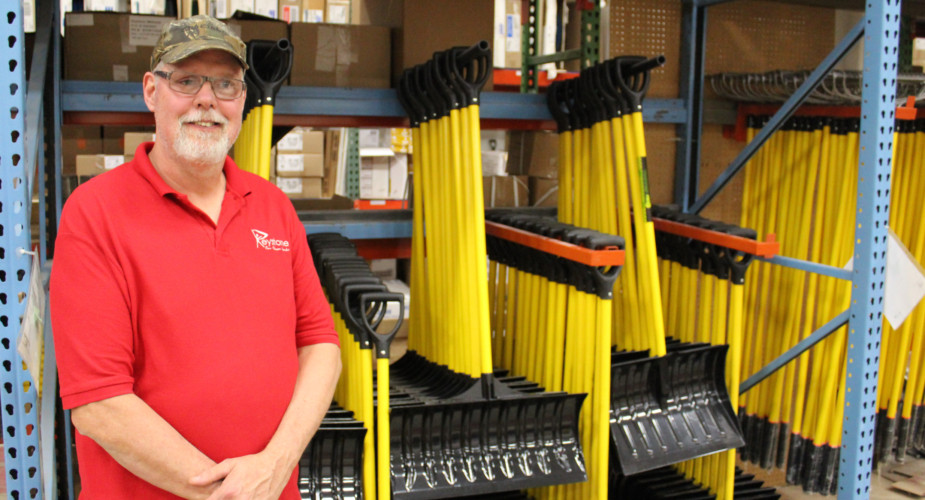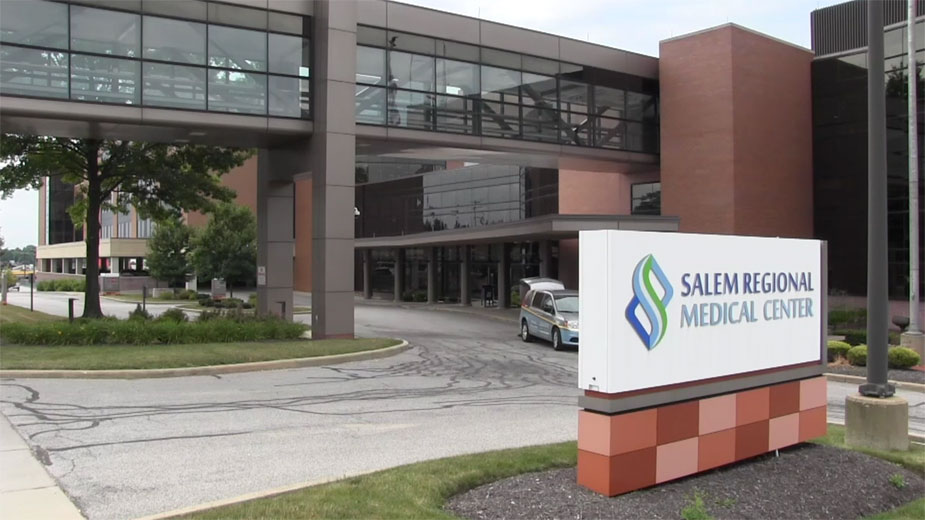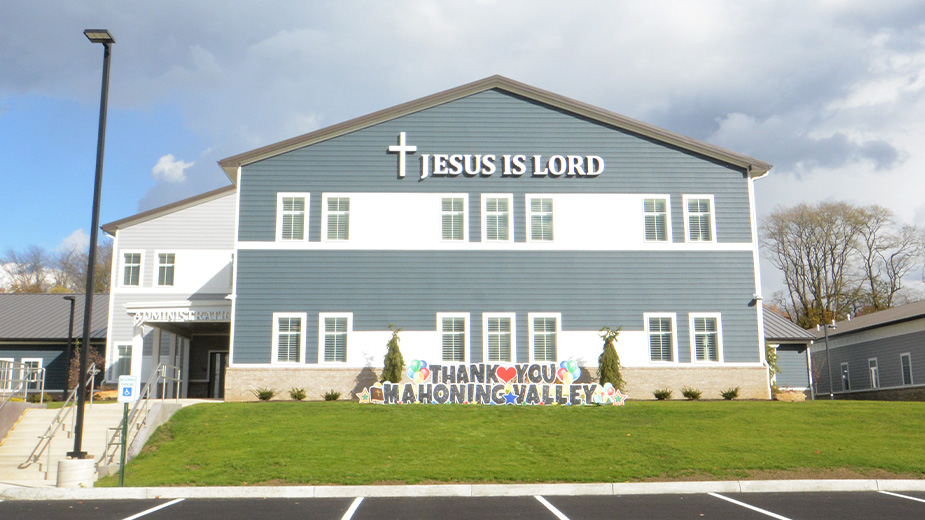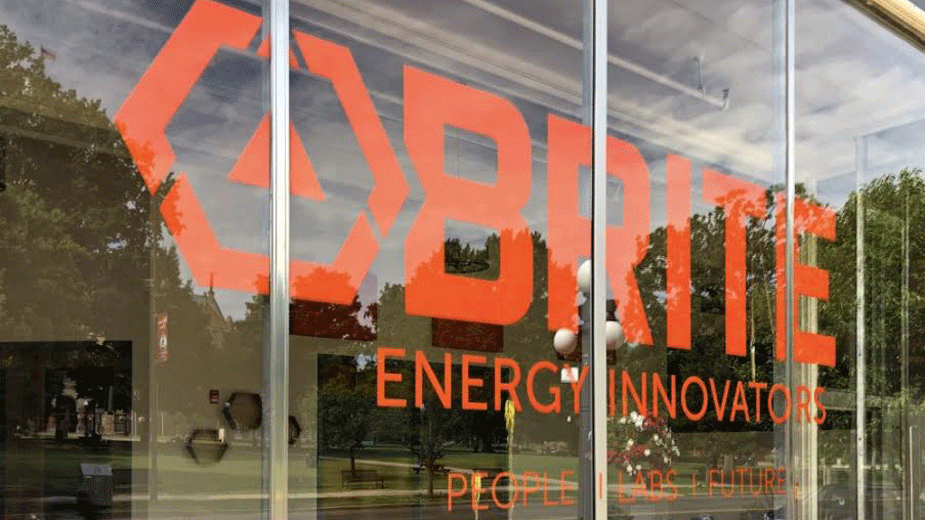The Blind Have a Feel for Building Things
HERMITAGE, Pa. – It doesn’t take Gary Harrison long to assemble a snow shovel. He starts with driving a rivet into the D-shaped handle to secure it to the shaft. When a few shafts are done, he carries them to a workbench a few feet away so he can grease the other end of the shovel, making it easier to attach the scoop.
After it’s on, Harrison holds up the shovel by the handle, leaving the scoop resting on the table, to make sure it’s on straight. Then he screws it in place. He repeats the process for however many snow shovels are needed to fill that day’s order.
All in all, assembling the snow shovels is a pretty easy job compared to some of the other things manufactured at the Keystone Blind Association workshop in Hermitage, Pa., he says.
“There’s just not many tools for this,” Harrison says. “It’s pretty straightforward and you only need a couple of tools.”
Automation is absent from the manufacturing floor of the workshop. And like the rest of his coworkers, Harrison is legally blind.
With help from National Industries for the Blind, the manufacturing process for tools and equipment at Keystone has been designed specifically for those with visual impairments. Custom jigs have been fitted to each piece of machinery and workstations have been laid out for ease of access. Most of the changes are small and not particularly noticeable at first.
At the station where hardhats are assembled, for example, the boxes the parts arrive in have arches cut out of the side so workers can reach straight ahead instead of up and into the box. As they attach the chinstraps and harnesses to the inside of the hardhat, workers rest one helmet inside another to help balance it, a process suggested by the national organization.
Harrison eventually moves to the sledgehammer station, pushing the head onto the handle before placing the hammer into a brace on a hydraulic press to secure the parts together. When the press has gone as far is it needs to, a buzzer sounds, letting the worker know that it’s done.
“In our tool section, where we assemble rakes and shovels, we have drill presses with specific jigs for each tool. They can drill and hit the same spot every time,” says Chris Filer, the plant supervisor. “When that buzzer goes off, they know to stop pressing. That way, every time, they can get the same result.”
In the hammer assembly area, an epoxy-spraying machine is fitted to put a precise amount of epoxy onto the hammer to hold the head and handle together.
“The supplier we use, they use squeeze bottles to eyeball how much epoxy they put on their sledgehammers. We can’t do that,” says Karen Bly, director of product development and production. “There’s an enormous liability we’d have if there weren’t some kind of technical apparatus to help us.”
The only work in the plant the legally blind don’t perform is the final step of packaging and quality control, she says. That step is crucial to the government contracts, both state and federal, awarded to Keystone, she explains.
There’s also an office staff on site to do the paperwork to keep the plant floor running smoothly and ensure that shipping deadlines – usually five days after an order is received – are met. To meet tough deadlines, Bly adds, additional stock is kept in the warehouse and expanded when there are few orders, keeping workers busy when there isn’t a large backlog.
While Keystone Blind Association started its manufacturing center nine years ago, the commonwealth of Pennsylvania began using products made by disabled individuals in the mid-1950s upon passage of what’s known as a “state-use law.”
The law lays out three requirements, explains Keystone’s president and CEO, Jonathan Fister.
First, the products have to be sold at a fair-market price. Second, the agency awarded the contract must have at least 75% of its workforce who make the products be blind or disabled. Finally, the products must be of a high quality.
“These are not typically the tools that you go into Home Depot or Lowe’s to buy,” he says. “They want a high-quality tool where the handle is going to last a long time, one you can run over with a pickup truck and still be able to use it.”
Harrison points to an example of what separates Keystone tools from others. Before he slides the snow-shovel scoop onto the fiberglass handle, he looks down the tube. Inside the length of fiberglass is a metal tube to prevent the shovel from flexing too much.
“It’s in there to reinforce that. You don’t want it falling apart halfway through the driveway,” he says with a laugh. “You’re already upset that you’ve got to shovel snow. You don’t need your shovel falling apart too.”
If an agency can meet those three criteria, then the state is required to award a portion of its contracts to the agency. The federal law, passed not long after Pennsylvania’s, varies slightly but follows the same general rules.
“We have to identify the product, verify that we can produce it, meet quality standards and specs and consistently provide a product or service,” the CEO says. “If we can do that, the work is ours and it goes on year after year.”
As the years have passed, Keystone has vastly expanded its manufacturing capabilities, offering nearly 40 striking and digging tools – snow shovels, rakes, sledgehammers, post-hole diggers and more – and hardhats.
When the association relocated its headquarters to a former furniture store near the Shenango Valley Mall, it was able to convert the storeroom to a manufacturing floor that has more work and storage space. The move increased production capacity. For hardhats alone, production climbed 30% last year when 630,000 were made, Fister says.
The contracts awarded to Keystone are a major source of income for the agency, he continues. While the association’s headquarters has a storefront to sell the goods and Keystone has commercial customers, government contracts make up a vast majority of its revenue. The CEO did not disclose sales figures.
In addition to manufacturing, Keystone has janitorial and grounds-keeping service contracts at 34 rest stops along the interstates in Pennsylvania and operates seven photo centers for driver’s licenses in the commonwealth. At the headquarters, next to the manufacturing area, Keystone workers also destroy documents.
If you struggle to wrap your head around how someone who’s legally blind can do all of these jobs, that’s OK, Fister says. It’s a question he’s answered plenty of times. When most people say “blind,” their immediate thought is blackness, nothing. But legally blind is different and has a couple of meanings.
First, it means that someone has only 20/200 vision in his better eye with the maximum correction possible. For comparison, he offers this example: on an eye chart at a doctor’s office, reading the fifth line from 20 feet away is 20/20 vision. Now, back up to 200 feet to read that same line and you’ll see the visual capability of someone who’s legally blind.
The second definition deals with peripheral vision. If someone has a field of vision of less than 20 degrees, he is legally blind.
For people who fall into either category, unemployment is rampant. Among working-age people, upward of 70% are unemployed, according to National Industries for the Blind. By comparison, the national unemployment rate is 4.9%.
“It is really difficult for people who are blind to find work, meaningful work,” Fister says. “The public is just never going to [adjust]. Even if they’re sympathetic to the situation, how are they going to gear up for one person? All we do is gear up for these things.”
Across all its offices and sites throughout Pennsylvania, Keystone employs about 675. In Hermitage, workers shred sensitive documents – blind employees are “an odd selling point” when it comes to destroying medical and financial records, Fister says with a laugh – and make tools and equipment.
Just south of Philadelphia, the Chester site manufactures toilet paper for the state prison system, as many as 90,000 rolls each week.
In West Middlesex, Keystone employees go to O’Neill Coffee Roasters to roast, grind and package the association’s own brand of decaffeinated coffee. Thirty employees work at Cheyney University of Pennsylvania as its janitorial team.
The purpose of Keystone, Fister says, is to provide real, stable jobs to the state’s blind population. This is not a make-work operation.
“Our typical salaries are all over minimum wage and we have a lot of people making $10 or $12 an hour. These are decent jobs,” he says. “We make tools for the Department of Defense. That’s important. Our people compete for these jobs in this market like any private company would.”
And by having those kinds of jobs and the income that comes with them, the blind rely less on government aid. It’s common, the CEO says, for a Keystone employee to live in her own home, often alone. Most help from others comes in the form of transportation, but even so, many take buses to work.
Beyond just employment, though, Keystone offers a spectrum of services for the visually impaired that includes vision screenings for preschoolers, a low-vision clinic, casework services, and rehabilitation and orientation services.
Through the latter, the blind relearn how to do tasks they encounter in everyday life, such as how to use a smartphone, how to sew a button, how to cook meals, even how to use a computer. It all comes back, Fister says, to Keystone’s mission of keeping the visually impaired as independent as possible.
“In today’s world, so many jobs are driven by technology. This is a great opportunity for us to be able to prepare people for technology jobs,” he says. “If they can read a spreadsheet, enter data and fill out forms, then a blind person can do the same jobs as a sighted person on a computer.”
These programs are mostly funded by what’s left over from the tool and equipment contracts after paying employees, buying supplies and taking care of the other costs of doing business. Donations and fundraisers make up the remaining, small portion of the budget.
Keystone is always exploring new avenues, Fister says. The association is looking to add wood-handled tools, which it will sell alongside the fiberglass variants.
“Wood-handle tools outsell fiberglass four to one. This will be a big new market,” he says, adding that Keystone started with fiberglass tools because it was a niche market, meaning less competition and therefore an easier one to enter.
One project that’s still mostly under wraps is a “very unusual” contract negation to staff a mailroom for a federal agency office in Pennsylvania. Fister says he can’t provide more information until the contract is approved.
“If all the I’s get dotted and the T’s get crossed, over the course of the summer, we’ll begin running that mailroom utilizing legally blind individuals,” he says. “There are 71 jobs there. That is a huge impact to the unemployment of blind and visually disabled people in our community.”
And for the blind population, having these opportunities is important.
“I started out working as the administrative assistant and realized there was more we could do, more help we could be in terms of them making their own money,” says Bly, the director of production. “They come to work and do a job where other people benefit from what they’re making. That’s very important to me.”
For Harrison, the job at Keystone is one he’d never had before, although he says he’s always had mechanical inclinations.
“But this is new to me. I’ve always been a work-on-my-stuff kind of guy. They trained me and off I went,” he says before he heads to a break area with his coworkers. “It’s something different and I enjoy the people I work with. It gives me an opportunity to learn stuff. I’m visually impaired and it’s an opportunity for me to work.”
Pictured: Gary Harrison is part of the team at Keystone Blind Association assembling tools for the Department of Defense.
Copyright 2024 The Business Journal, Youngstown, Ohio.



